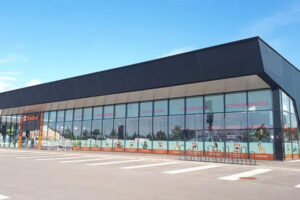By Joanna Fisher
The COVID-19 pandemic and its effects have hit the brick-and-mortar retail sector extremely hard. The consequences of the crisis are noticeably strong, and its impact will be felt by the retail industry for some time to come, especially since it will accelerate and intensify the existing trends and change processes in the retail sector even further.
As a result, the crisis and its effects are posing major challenges to the industry. However, it has also made some things very clear, and it has placed an even sharper focus on certain key approaches and fields of action that will become even more important in the future.
Firstly, providing omnichannel solutions is no longer an option, but a must for the retail industry. Interconnected online and offline activities have become increasingly popular with consumers and retailers. In the future, it will be important for retailers – particularly smaller retailers that do not have their own online platforms – to be connected to a larger, joint partnership-oriented platform and to utilize their own stores as warehouses as well to make deliveries to buyers from the stores. To that end, ECE has implemented its Digital Mall at over 50 German shopping centers, in close collaboration with approximately 70 retailers, and has begun offering same-day delivery options directly from the shopping centers, which has resulted in very positive initial experiences using this approach.
Secondly, particularly in times of crisis, a spirit of partnership and trust becomes even more important. Retailers and real estate owners both have an interest in ensuring that the retail business is successful over the long term as well as in operating a functioning building in a lively city. Both sides need to work together to find clever and fair solutions to reduce ancillary costs and spread the rent, especially during shutdown periods, across multiple parties. The close and very often solution-oriented dialog over recent weeks and months is a step in the right direction and demonstrates that an increasing number of participants understand that all of us in the industry are in the same boat and that we can only move forward together.
Thirdly, calls for greater flexibility in lease contracts – with shorter or more flexible terms and a stronger focus on sales – will continue to grow. However, in this case as well, both sides need to work together as partners and avoid one-sided solutions. Demands for significant contributions to shop-fitting costs combined with rents entirely based on sales and the ability to terminate leases at short notice will not be sustainable over the long term and threaten the quality of precisely those locations that the retail industry will continue to need in the future.
Fourthly, over the long term, quality is king – that applies to retail concepts as well as to operators and retail locations. Attractive locations, large properties in urban environments, and neighborhood centers and locations will continue to do well in the future and will probably have little difficulty finding new tenants. In contrast, less attractive locations and sites are unlikely to have a future.
Fifthly, the planning and implementation of clever strategic concepts to further enhance retail locations is becoming increasingly important. That includes the diversification of the branch mix with supplementary offers from the dining and entertainment sector, as well as the expansion and combining of existing retail locations with additional forms of use, such as hotels, residential space, and offices, in order to strengthen and enhance each other. “Placemaking” is the keyword in this regard.
Sixthly, expertise in the operation of retail properties and professional management have proven to be success factors during the crisis, for example, in the coordinated reopening of stores or the implementation of standardized hygiene concepts.
The industry’s common goal must be to become proactive in these areas of activity in a spirit of partnership and, in so doing, lead the brick-and-mortar retail sector into a successful future – with new ideas and approaches, with courage and an innovative spirit, with a common understanding of what needs to be done, and with a clear focus on consumers’ changing needs and desires.






